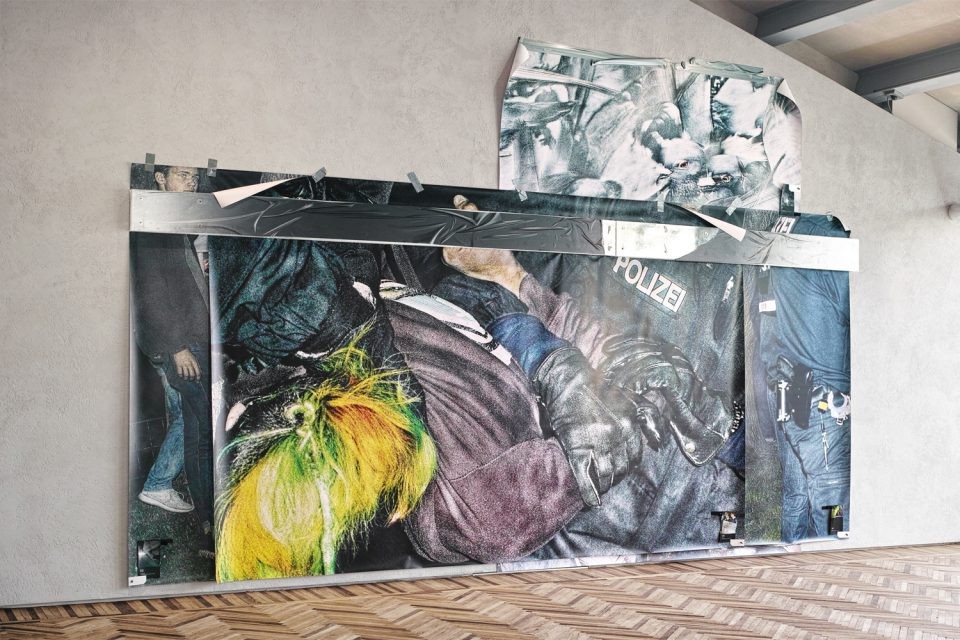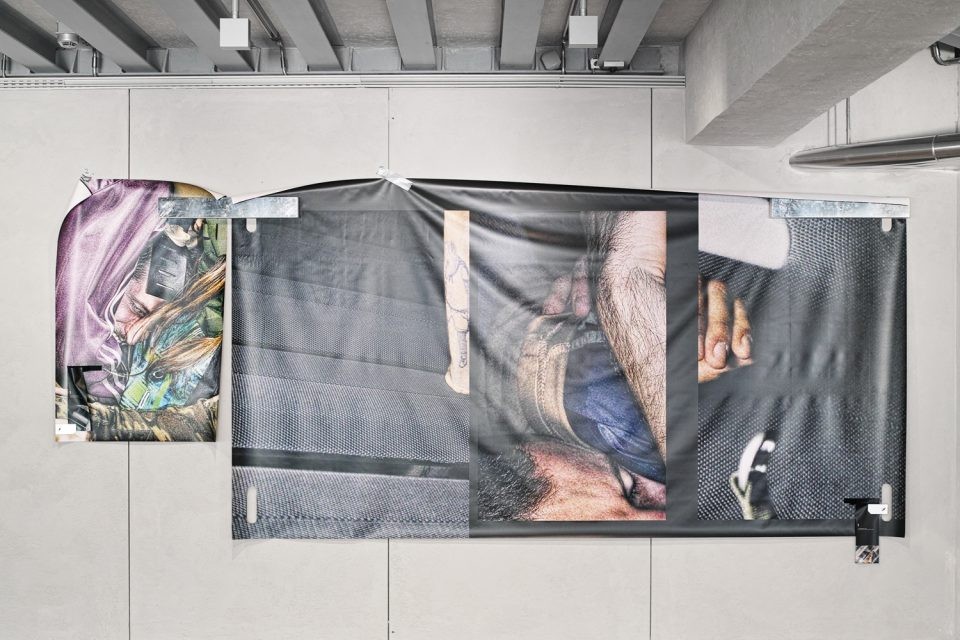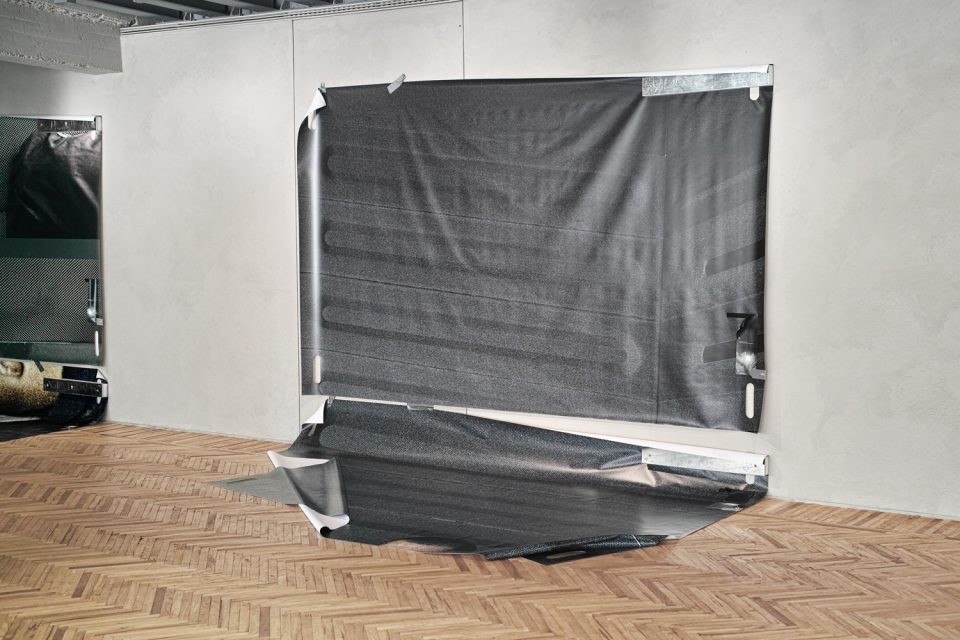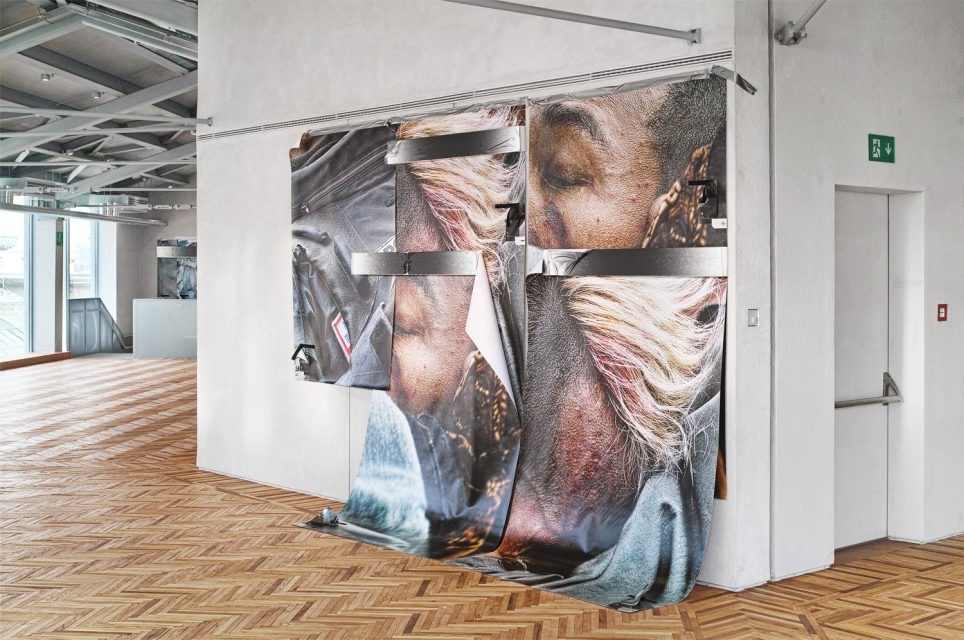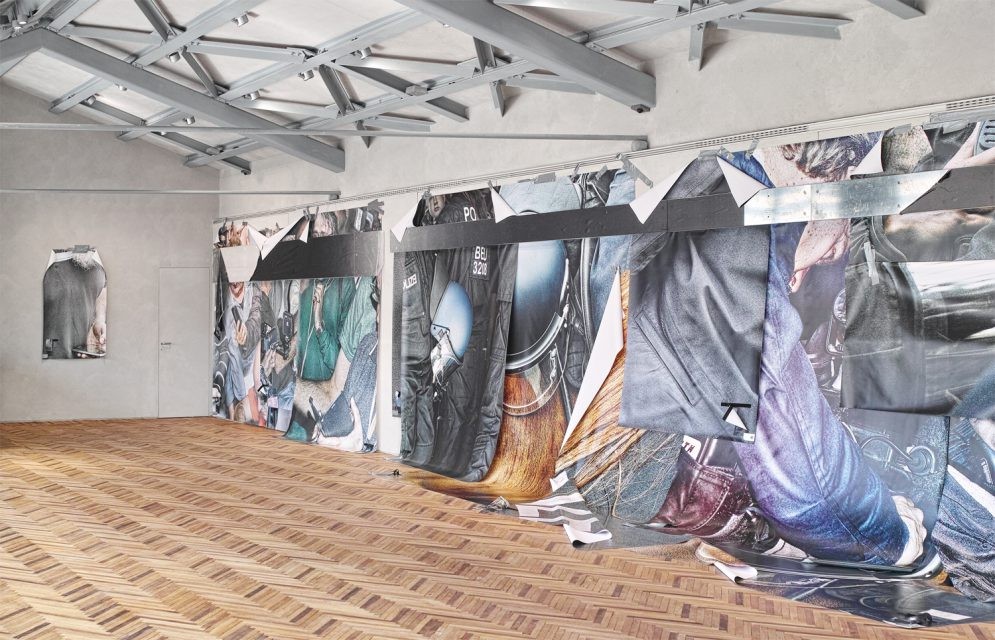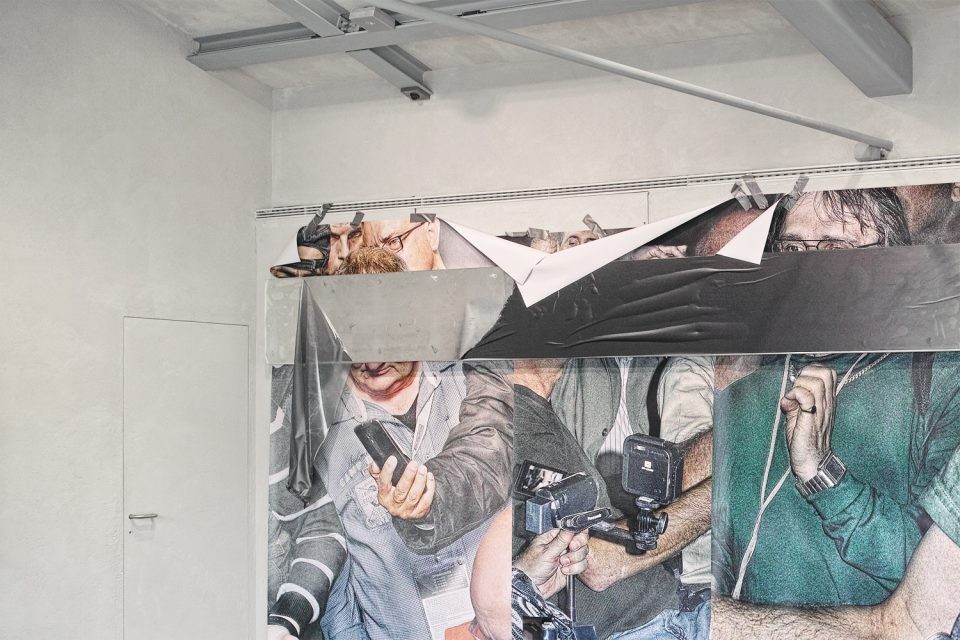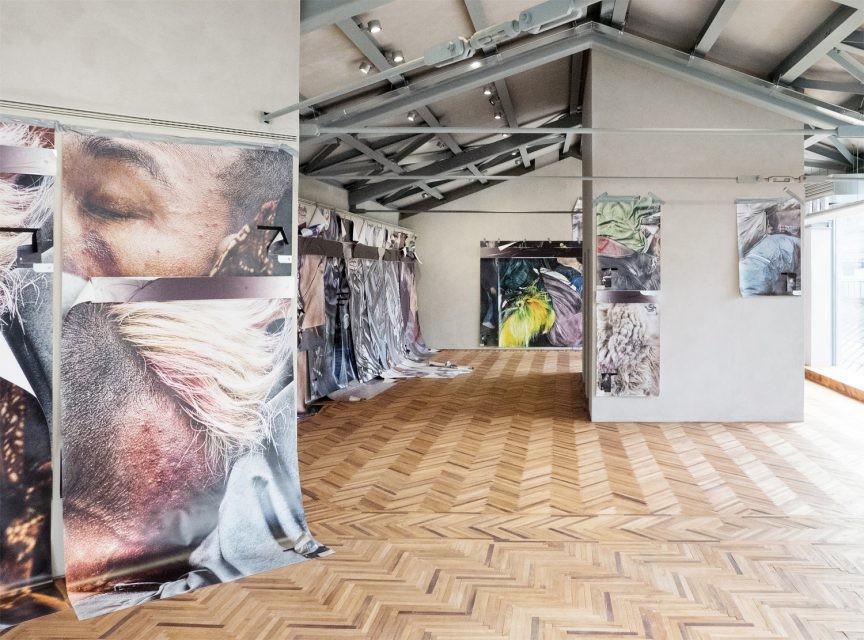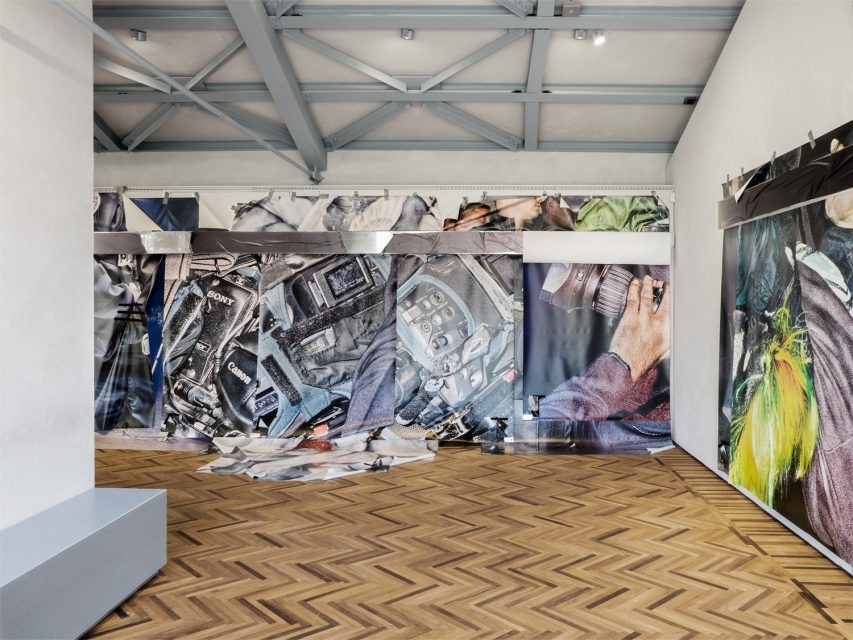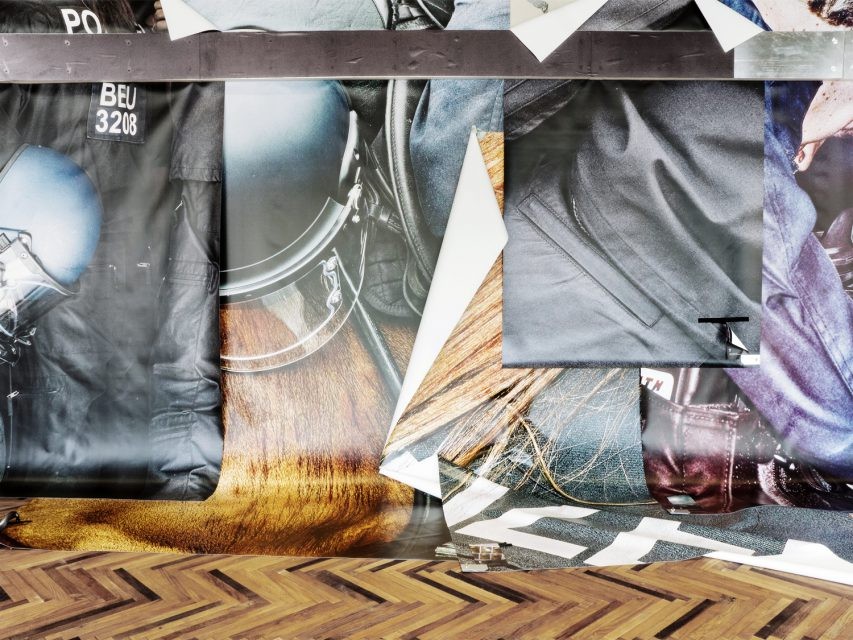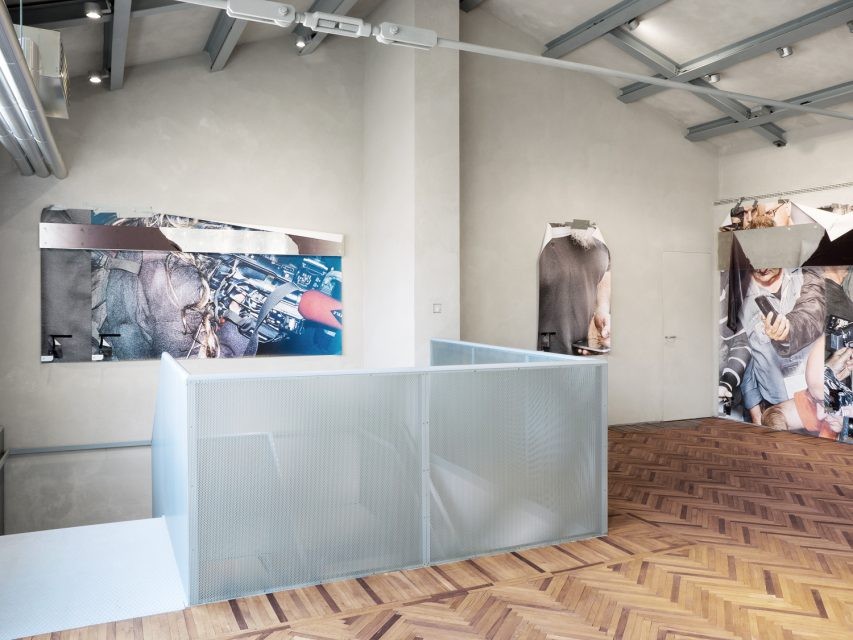Satoshi Fujiwara
EU
07 Jun - 16 Oct 2017
SATOSHI FUJIWARA
EU
7 June – 16 October 2017
“EU” is an anthological exhibition by Japanese photographer Satoshi Fujiwara presented at the Osservatorio in the Galleria Vittorio Emanuele II in Milan. The show includes some of the most significant works by the artist long with “5K Confinement”, a commission realized for “Belligerent Eyes”, an experimental media research project on image production hosted at Fondazione Prada in Venice in Summer 2016.
Curated by Luigi Alberto Cippini in a set-up conceived by Armature globale, the exhibition offers an alternative to the representational regimes which have set the ground for the current “European photographic identity”. As stated by Cippini, “contemporary photographic production seems to be regulated by strict resolution, impact and distribution standards. An increasing number of freelance reporters daily documents social and political events within and on the edges of the European Union, producing images that, although free from any rigid classification standards, seem to be nonetheless subject to specific aesthetic, accessibility, spatial and content regimes. Such constraints allow and support the work of new generations of photographers, increasing the possibilities for their photos to be published yet contributing to the standardization of an average, neutral taste”.
Satoshi Fujiwara (Kobe, Japan, 1984), initiates a pressing and critical action on the gazer, through the focal length set from portrayed subjects and the heterogeneous definition of his photographs, diverting from the standards of photo-journalism and from an exclusively documentary dimension, thus producing a new emerging lexicon.
The exhibition is divided into two sections: the first, hosted on the lower level of Osservatorio, is a reconstruction of commission “5K Confinement”, whereas the upper floor hosts a retrospective which gathers works from a number of different series, such as “#R”(2015-ongoing), “THE FRIDAY: A report on a report” (2015), “Police Brutality” (2015), “Venus” (2016-ongoing), “Continent” (2017-ongoing), “Animal Material” (2016-ongoing), “Mayday” (2015), “Scanning”(2016) and “Green Helmet (2016).
The set up for “EU” is made up of assembled images, which aim to eliminate any linear narrative context. This operation was inspired by the re-elaboration of an exhibition architecture designed by Herbert Bayer for “The Road to Victory: a procession of photographs of the nation at war”, a show held at MoMA in New York in 1942.
Portions of worn out cameras, along with different forms of human presence and surveillance, all converge in some kind of tazibao: this historical form of public information employed during the Chinese Cultural Revolution is combined with currently widespread visual association constraints, such as video editing and digital manipulation softwares.
As explained by Cippini, the exhibition set-up is “a conglomeration of definition formats and standards which documents the inurement to image consumption, as well as the necessity to dialogue with less visible means of contemporary propaganda”.
“EU” is accompanied by a publication, “5K Confinement. HD Environment Surface Surveillance “, curated by Luigi Alberto Cippini and edited by Fondazione Prada.
EU
7 June – 16 October 2017
“EU” is an anthological exhibition by Japanese photographer Satoshi Fujiwara presented at the Osservatorio in the Galleria Vittorio Emanuele II in Milan. The show includes some of the most significant works by the artist long with “5K Confinement”, a commission realized for “Belligerent Eyes”, an experimental media research project on image production hosted at Fondazione Prada in Venice in Summer 2016.
Curated by Luigi Alberto Cippini in a set-up conceived by Armature globale, the exhibition offers an alternative to the representational regimes which have set the ground for the current “European photographic identity”. As stated by Cippini, “contemporary photographic production seems to be regulated by strict resolution, impact and distribution standards. An increasing number of freelance reporters daily documents social and political events within and on the edges of the European Union, producing images that, although free from any rigid classification standards, seem to be nonetheless subject to specific aesthetic, accessibility, spatial and content regimes. Such constraints allow and support the work of new generations of photographers, increasing the possibilities for their photos to be published yet contributing to the standardization of an average, neutral taste”.
Satoshi Fujiwara (Kobe, Japan, 1984), initiates a pressing and critical action on the gazer, through the focal length set from portrayed subjects and the heterogeneous definition of his photographs, diverting from the standards of photo-journalism and from an exclusively documentary dimension, thus producing a new emerging lexicon.
The exhibition is divided into two sections: the first, hosted on the lower level of Osservatorio, is a reconstruction of commission “5K Confinement”, whereas the upper floor hosts a retrospective which gathers works from a number of different series, such as “#R”(2015-ongoing), “THE FRIDAY: A report on a report” (2015), “Police Brutality” (2015), “Venus” (2016-ongoing), “Continent” (2017-ongoing), “Animal Material” (2016-ongoing), “Mayday” (2015), “Scanning”(2016) and “Green Helmet (2016).
The set up for “EU” is made up of assembled images, which aim to eliminate any linear narrative context. This operation was inspired by the re-elaboration of an exhibition architecture designed by Herbert Bayer for “The Road to Victory: a procession of photographs of the nation at war”, a show held at MoMA in New York in 1942.
Portions of worn out cameras, along with different forms of human presence and surveillance, all converge in some kind of tazibao: this historical form of public information employed during the Chinese Cultural Revolution is combined with currently widespread visual association constraints, such as video editing and digital manipulation softwares.
As explained by Cippini, the exhibition set-up is “a conglomeration of definition formats and standards which documents the inurement to image consumption, as well as the necessity to dialogue with less visible means of contemporary propaganda”.
“EU” is accompanied by a publication, “5K Confinement. HD Environment Surface Surveillance “, curated by Luigi Alberto Cippini and edited by Fondazione Prada.

